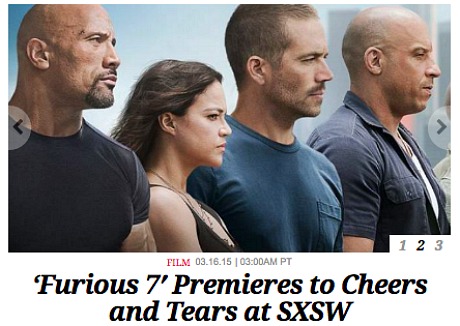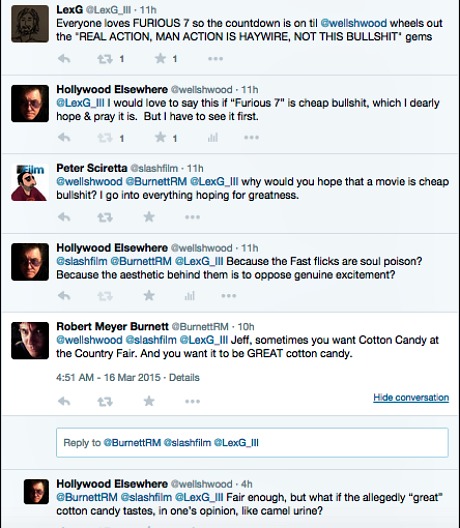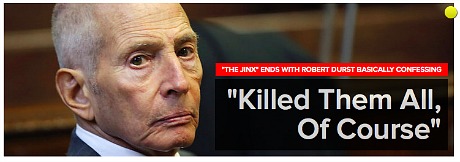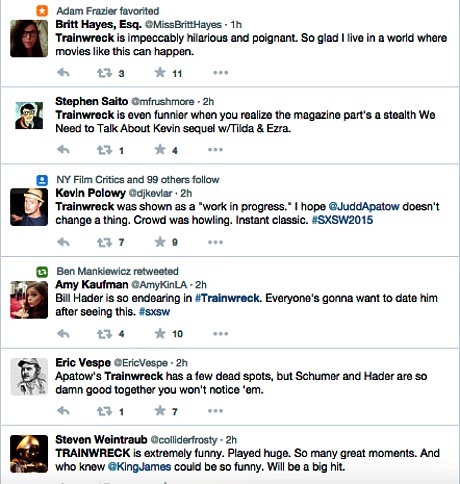I was reminded last weekend there are several kinds of laughter but really only two — the heartfelt but not over-the-top kind that you tend to hear from people of modest character or cultivation, and the excessive, low-class laughter from people whose lives are basically a series of frustrations followed by a series of emotional outbursts, and who don’t “laugh” as much as howl or shriek or cackle like jackals, and who don’t seem to know when to put a cap on it when the laughter is done.
If something is funny you laugh accordingly — honestly, softly, giddily, loudly, joyously. But if you have any class you let it go after a few seconds and don’t hang onto it like a four-year-old. You let the flow of emotional ecstasy cool down and settle into a natural horizon-line of serenity.
I was in the fruit section of the West Hollywood Pavillions last Saturday, and a woman near one of the checkout counters was laughing like a loon who’d lost all sense of control. 10, 15, 20, 30 seconds…she wouldn’t quit. She could be heard all over the store, in every section, every aisle. You could see basket-pushers stop and turn in her direction and make a slight face as if to say, “What’s wrong with that woman? Why doesn’t she turn it down a bit?”
The general rule, I’ve found, is that the louder and longer a person laughs in mixed company, the more repressed and fucked up their lives are. For loud, prolonged laughter is not about “funny” — it’s about emotional exorcism or a kind of primal scream release. It’s about people letting go of inner torment, really. The loon laughers are never aware of what’s really going on, of course. They think they’re just having a great old time.
Read more








